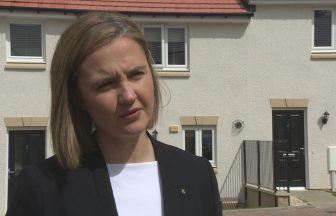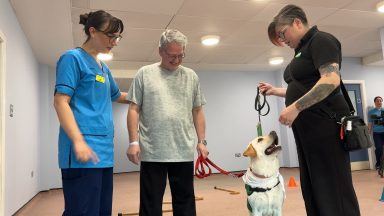Staff at a nationalised prison in east Ayrshire have threatened strike action in a dispute over pay and conditions.
Unionised workers at the HMP Kilmarnock voted overwhelmingly for industrial action including strikes, with an indicative ballot returning 98% in favour on a 60% turnout.
It comes just days after the former private prison came into public ownership via a transfer to the Scottish Prison Service.
Steve Farrell, regional secretary for Scotland at the trade union Community, said: “Our members are incensed for a number of reasons.
“We are the only union putting pressure on the Scottish Prison Service and the Scottish Government.
“The recent decision by the SPS and supported by the Sottish Government to de-recognise Community at HMP Kilmarnock is wholly irresponsible and potentially illegal.
“The existing staff recognition agreement at Kilmarnock has a next review date of September 2024 and was signed in good faith with Serco in September 2023.
“The individual contracts for staff are legal and binding, and within every individual contract is the explicit clause that Community is recognised for all matters of collective bargaining.
“It’s completely disingenuous for the SPS (Scottish Prison Service) and Scottish Government to suggest that HMP Kilmarnock is no longer a separate entity to the rest of the Scottish Prison estate, especially as staff terms and conditions at Kilmarnock are not being aligned with other Scottish prisons with immediate effect.
“The SPS are not just deviating from TUPE rules, but wilfully putting industrial relations at Kilmarnock at risk – they need to get back round the table, and the Scottish Government need to do more than just shrug their shoulders from the sidelines.”
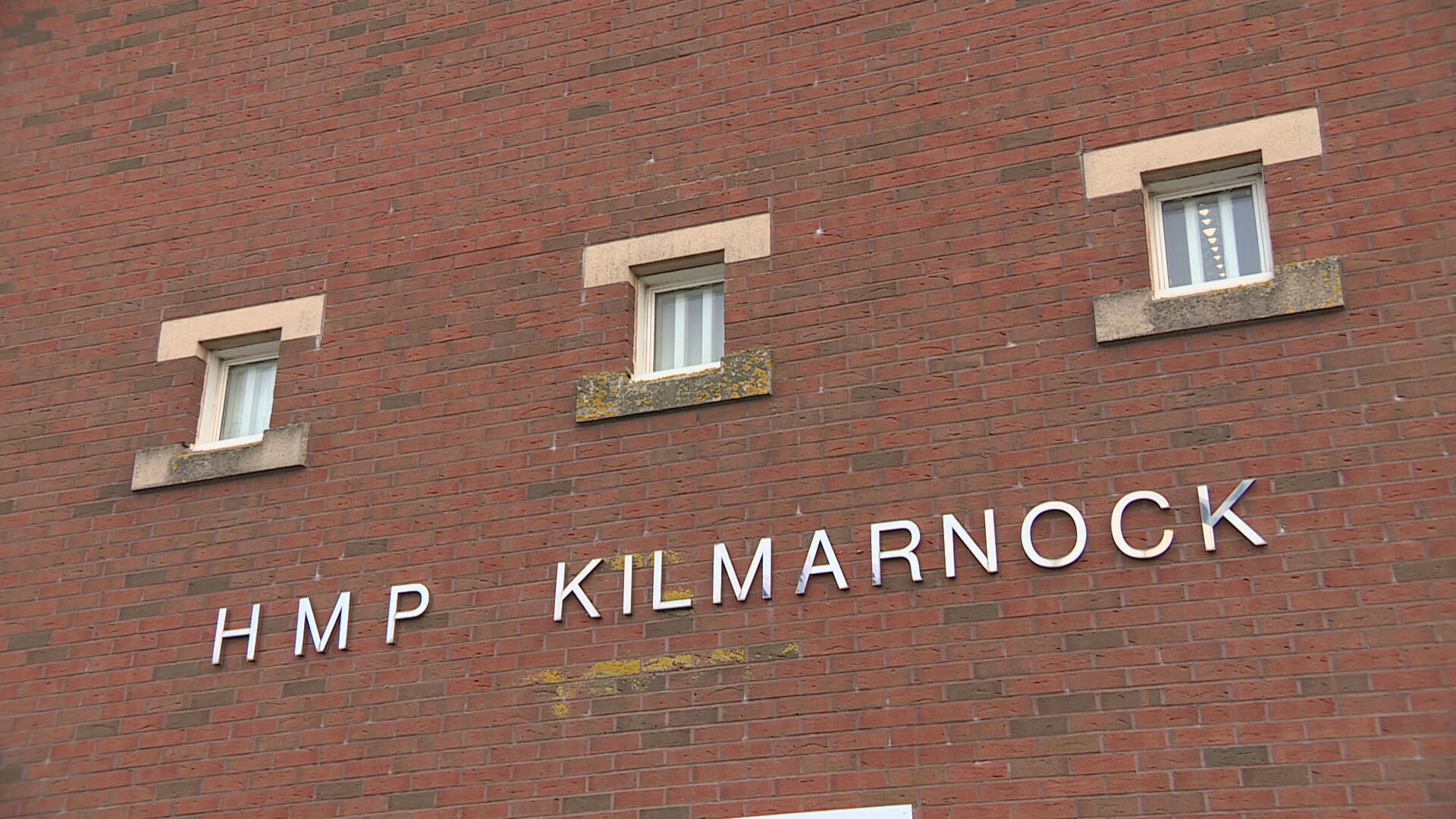 STV News
STV NewsCommunity said it has been the recognised trade union at HMP Kilmarnock since 2001, with full responsibility for all collective bargaining on behalf of the workforce.
Approximately 70% of the operational staff group at the prison are represented by Community, which organised the indicative ballot for industrial action.
However, the SPS and the Scottish Government don’t recognise the trade union that represents workers at the prison.
A Scottish Prison Service spokesperson said: “HMP Kilmarnock is a safe, secure and well-run establishment, and we are grateful for everything the Community union has done over the years to support this.
“With HMP Kilmarnock successfully transitioning to the SPS, staff there have been welcome to join our recognised unions – POA, PCS, and Prospect – at a time when we are celebrating 20 years of a partnership agreement with them.
“We are working with our union partners on a harmonisation process, which will deliver a pay increase for HMP Kilmarnock staff.”
The Prison Officers Association, which represents the vast majority of SPS staff, says the prison’s move into public ownership will result in more jobs.
Phil Fairlie, chairperson of the POA, told STV News: “The first thing that is going to happen is that we are going to have to recruit somewhere between 50 to 70 staff based on the current level that they (HMP Kilmarnock) have got.
“That is a significant level of staff to be added to the complement for a single prison. That is one of the clear examples of the difference between private and public in terms of how they manage the day-to-day regime.
“The trade union are already engaging with the prison service on the terms and conditions for staff and that is another change that will happen in the course of this year.”
A Scottish Government spokesperson said: “The Scottish Prison Service (SPS) has committed to harmonise all the terms and conditions including pay of HMP Kilmarnock staff with those of SPS staff within 12 months of the transfer.”
‘Running over capacity’
The ongoing pay dispute comes as the governor of HMP Kilmarnock warned it is already running over capacity.
Craig Thomson said the institution faces a difficult balancing act in managing an increasing population with complex needs.
He was speaking to STV News after the jail was transferred to the Scottish Prison Service after its £368m contract with Kilmarnock Prison Services Ltd came to an end.
The jail opened in 1999 and was previously run by private contractor Serco, and the move comes as the prison estate has been under heightened scrutiny in recent months over concerns about its fitness for purpose and overcrowding.
Mr Thomson praised the efforts of those involved in transition earlier this month, but said big challenges lie ahead.
He said: “When you sell a house, you get your home report done. That is what happens in a prison, which is a small village, so there needs to be survey of that. Separate to that, there is also the continued wellbeing and care and decency for people we look after.”
Those involved in the transition from private to public say maintaining HMP Kilmarnock’s operational stability was a priority.
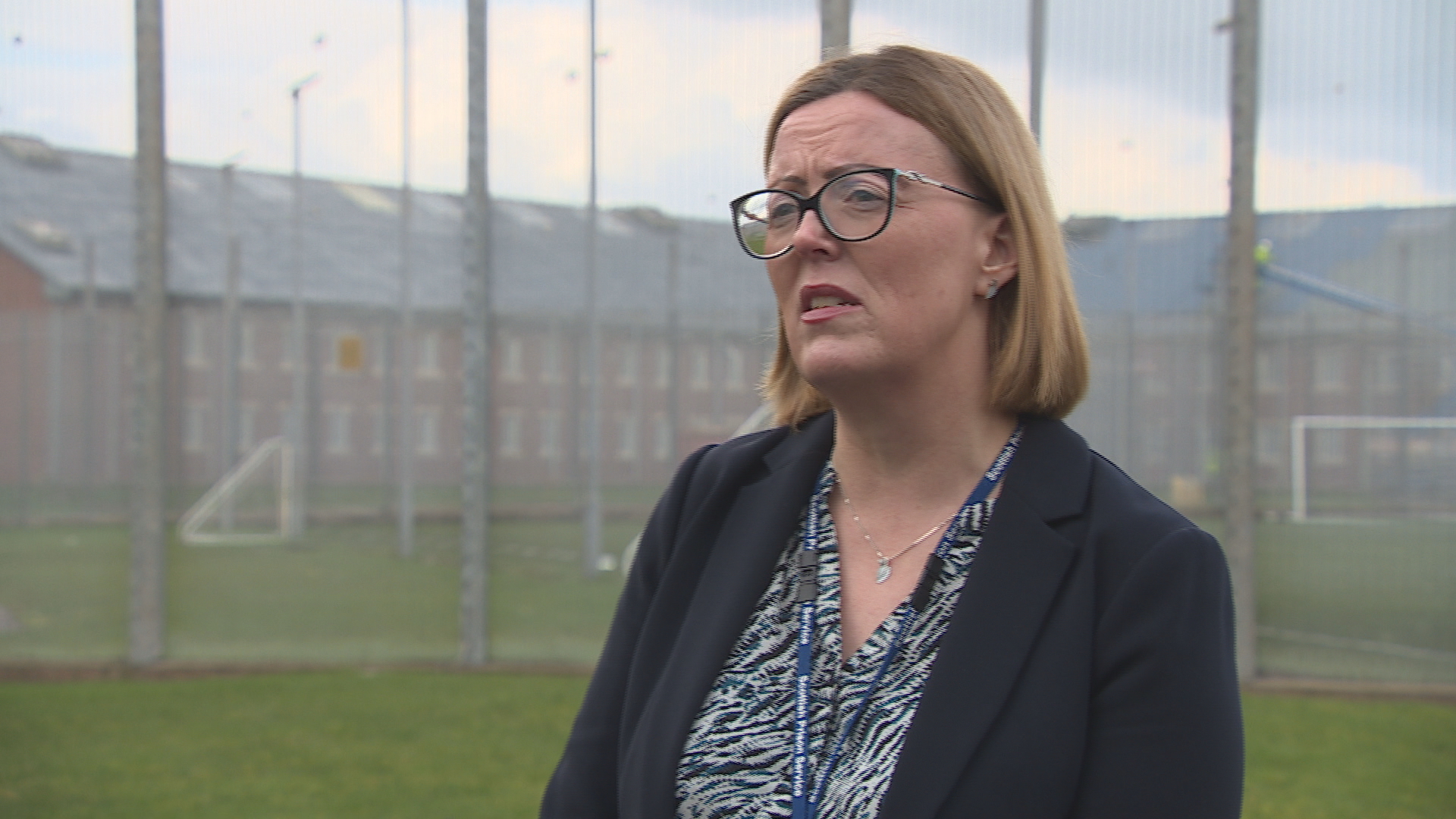 STV News
STV NewsLorraine Roughan, deputy governor at the Scottish Prison Service, said: “That was probably one of the fundamental reasons as to why we kept some of the technology systems that Kilmarnock have adopted, which are not within the SPS.
“It may make it more difficult for us as an organisation to manage but actually helps the staff and the people who live here to go about their day-to-day business well. “
Scotland has 15 prisons and it is feared the system is approaching a tipping point, as the prison population could hit an all-time high of more than 8,500 this year.
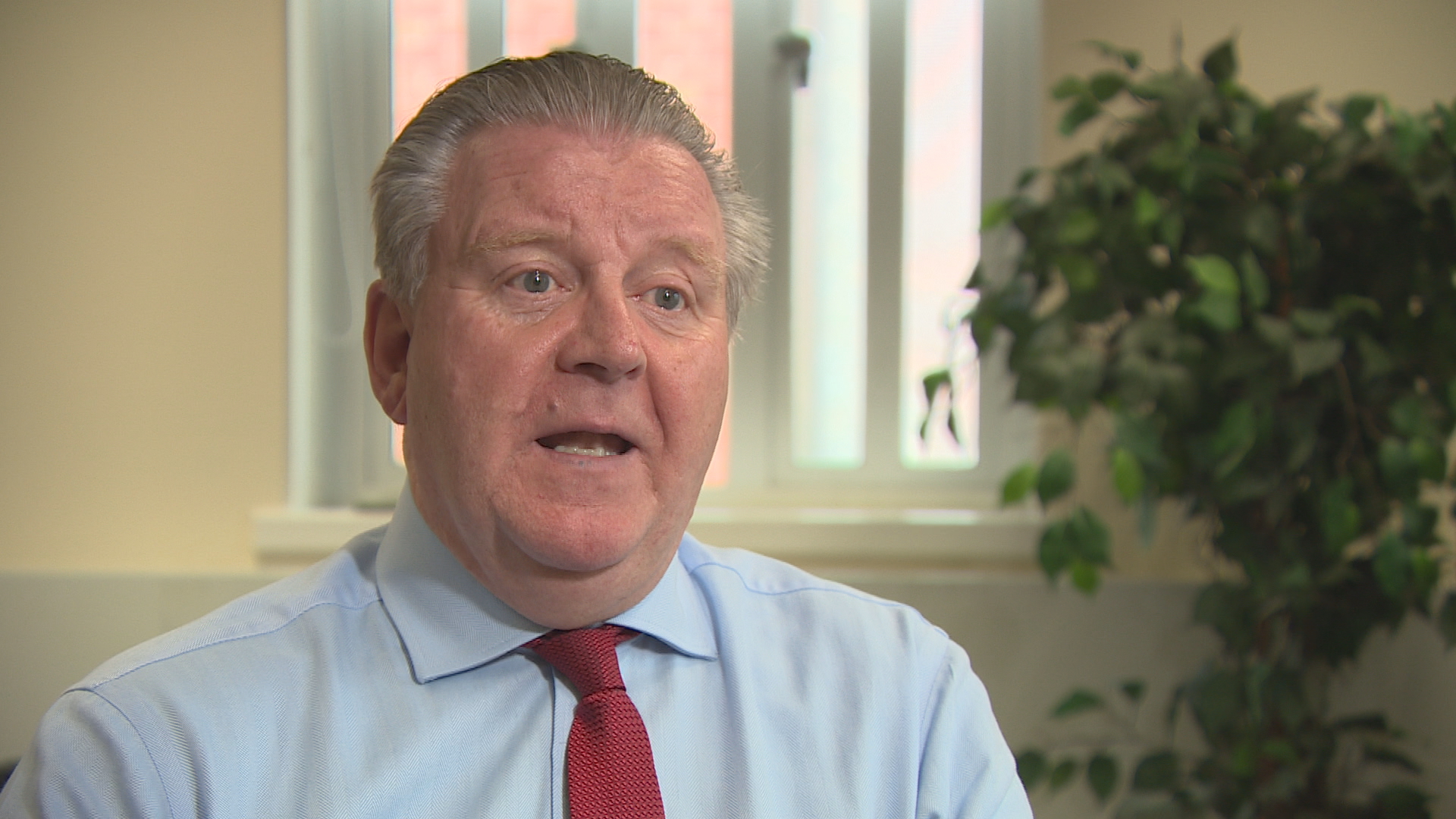 STV News
STV NewsMr Thomson added: “The bottom line is Kilmarnock prison is already overcapacity. This morning, the number here was 583. It will go back to 600 by close of play today.
“We can operate well at that. I think when you go beyond 600, to probably 650, is uncomfortable for me. It is doable but there is an impact and you’ve got to say ‘I’m not here to warehouse people’. That is not the desired outcome for any prison governor.
“I think 650 is where I would be saying ‘let’s take a breath here’, bearing in mind a number of people are already doubled up. There is a balancing act to be had but short-term surge, yes; long-term, (it’s a) political view.”
Following the nationalisation of HMP Kilmarnock, HMP Addiewell in West Lothian is now the country’s only remaining private prison.
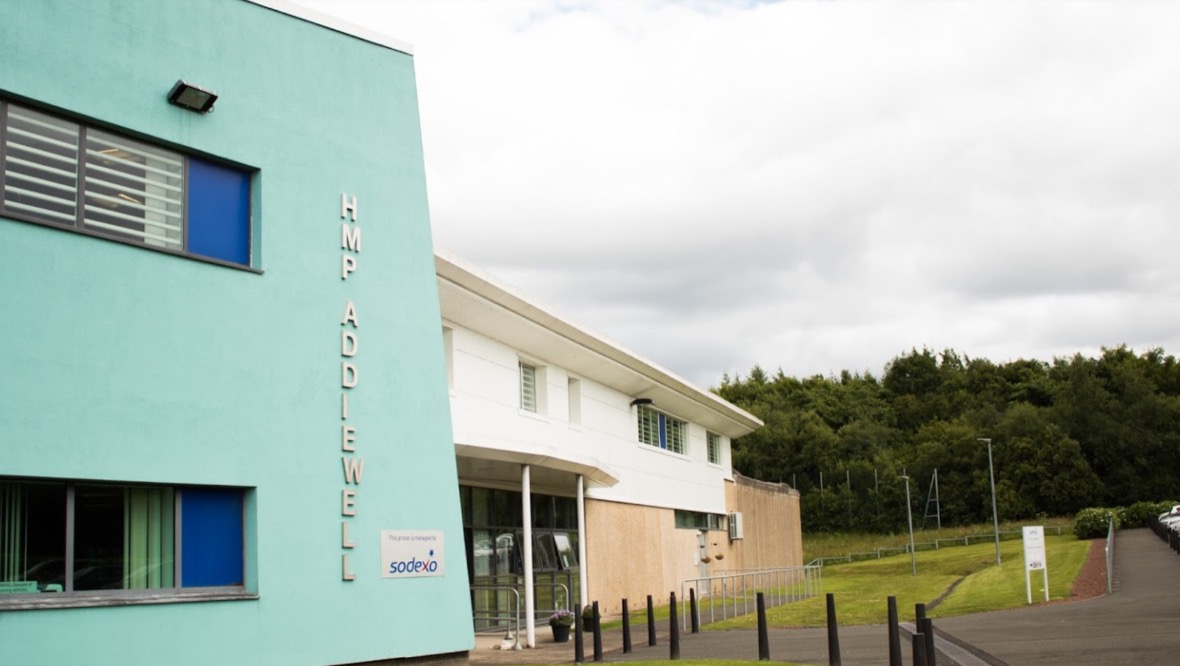 STV News
STV NewsEarlier this month, the chief inspector for prisons told a Holyrood committee that HMP Barlinnie in Glasgow was at risk of “catastrophic failure”, while HMP Greenock in Inverclyde should be “bulldozed”.
The Scottish Government is said to be looking at new legislation, contingency measures and investing in community sentences to try and reduce numbers.
Barlinnie is due to be replaced by HMP Glasgow by 2026.
“This prison is only 25 years,” said Mr Thomson.
“It’s not Barlinnie. I was in Peterhead in the 80s. Its not a Victorian prison.
“We know we talk about HMP Glasgow and I’m not going to get involved in that as the incomer to the bloc but there is significant land here and there is an opportunity for the prison service now, that it runs and operates as a a Crown facility, maybe have a rethink in future about Kilmarnock’s purpose because it is a very central location.”
Prison staff are now ‘less safe’
The final overall cost of operations at HMP Kilmarnock will depend on a variety of factors but is currently estimated at £18.6m for 2024-25.
The Scottish Conservatives said staff at the prison are now “less safe” having lost access to vital equipment in the transition.
Russell Findlay, the party’s Scottish Conservative justice spokesman, said: “It’s astonishing that five years after Humza Yousaf announced the transfer of HMP Kilmarnock into state control, contractual issues with staff are still unresolved, resulting in the threat of industrial action.
“It’s also extraordinary that it’s only now, after the transfer has happened, that the justice secretary has confirmed it will cost taxpayers million of pounds more.
“Due to the SNP government’s hostility to the private sector, HMP Kilmarnock staff are now less safe – having lost the protection of the body-worn cameras and removal of on-site drug detection dogs that have intercepted £1.2m of contraband.”
The Scottish Prison Service said detection dogs and handlers had been transferred to the SPS as part of the “successful transition process.”
Follow STV News on WhatsApp
Scan the QR code on your mobile device for all the latest news from around the country









